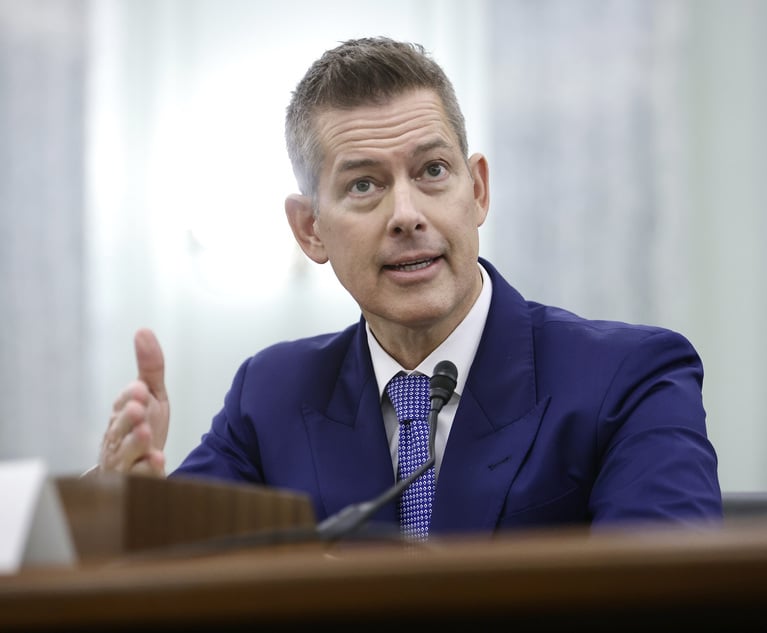IP: A defensive strategy for new gTLDs
Even if applying for a gTLD doesnt make sense for your organization, ignoring the application process would be a mistake
January 13, 2012 at 07:14 AM
3 minute read
The original version of this story was published on Law.com
ICANN's decision to expand the Internet to include new generic Top Level Domains (gTLDs), such as .Canon and .NYC, has been getting increased attention because applications are accepted beginning Jan. 12, 2012. Much of the discussion has, understandably, focused on whether a business or other organization ought to invest in a new gTLD. For some, this development presents terrific opportunities. Determining how best to take advantage of those opportunities calls for a solid offensive strategy. But too little has been said about the need for a defensive strategy, as well.
Even if applying for a new gTLD does not make sense for a particular organization, ignoring the gTLD application process would be a mistake. That process introduces new risks for every organization doing business on the Internet. Some of those risks come from potential infringements on intellectual property, but there are other risks too, such as unsupported competitive advantage.
ICANN has provided multiple procedures to reduce or remove those risks:
- Public Comments. ICANN will invite the public to submit written comments on gTLD applications beginning about two weeks after the application period ends on April 12, 2012. Public portions of the applications will be posted on ICANN's website. Anyone may submit comments and there is no fee. Comments submitted within 60 days of the date when they are first accepted will be taken into consideration by evaluation panels. To be considered, public comments should provide information about the applicant's prima facie case for getting a gTLD.
- Formal Objections. An application may be formally contested on four grounds. These include string confusion, legal rights, limited public interest and community. String confusion (as in linguistic string) occurs when the applied for gTLD is “confusingly similar” to an existing TLD or another gTLD applied for during the same round of applications. A legal rights objection occurs when the applied for gTLD “infringes the existing legal rights of the objector.” A limited public interest objection stands on the assertion that the applied for gTLD is “contrary to generally accepted legal norms of morality and public order that are recognized under principles of international law.” A community objection applies when a gTLD purports to serve a community but there is “substantial opposition” to that application from a “significant portion” of the community. Strict timing and standing rules apply, and there are costs (sometimes substantial) for filing and responding to a formal objection.
- Government Objections. Individual governments may raise concerns about a proposed gTLD by submitting public comments or contacting the applicant directly. ICANN's Governmental Advisory Committee—an organization of nation-state representatives—also may issue an early warning notifying the applicant that the gTLD “is seen as potentially sensitive or problematic by one or more governments,” or it may advise the ICANN board of directors that an application has attracted a consensus against it. Such advice carries the presumption that the application should be denied.
Each of these procedures, alone or in combination, may form a critical defense against the risks created by the introduction of new gTLDs.
This content has been archived. It is available through our partners, LexisNexis® and Bloomberg Law.
To view this content, please continue to their sites.
Not a Lexis Subscriber?
Subscribe Now
Not a Bloomberg Law Subscriber?
Subscribe Now
NOT FOR REPRINT
© 2025 ALM Global, LLC, All Rights Reserved. Request academic re-use from www.copyright.com. All other uses, submit a request to [email protected]. For more information visit Asset & Logo Licensing.
You Might Like
View All


After Botched Landing of United Airlines Boeing 767, Unlikely Plaintiff Sues Carrier
5 minute read
DOT Moves to Roll Back Emissions Rules, Eliminate DEI Programs
Trending Stories
Who Got The Work
J. Brugh Lower of Gibbons has entered an appearance for industrial equipment supplier Devco Corporation in a pending trademark infringement lawsuit. The suit, accusing the defendant of selling knock-off Graco products, was filed Dec. 18 in New Jersey District Court by Rivkin Radler on behalf of Graco Inc. and Graco Minnesota. The case, assigned to U.S. District Judge Zahid N. Quraishi, is 3:24-cv-11294, Graco Inc. et al v. Devco Corporation.
Who Got The Work
Rebecca Maller-Stein and Kent A. Yalowitz of Arnold & Porter Kaye Scholer have entered their appearances for Hanaco Venture Capital and its executives, Lior Prosor and David Frankel, in a pending securities lawsuit. The action, filed on Dec. 24 in New York Southern District Court by Zell, Aron & Co. on behalf of Goldeneye Advisors, accuses the defendants of negligently and fraudulently managing the plaintiff's $1 million investment. The case, assigned to U.S. District Judge Vernon S. Broderick, is 1:24-cv-09918, Goldeneye Advisors, LLC v. Hanaco Venture Capital, Ltd. et al.
Who Got The Work
Attorneys from A&O Shearman has stepped in as defense counsel for Toronto-Dominion Bank and other defendants in a pending securities class action. The suit, filed Dec. 11 in New York Southern District Court by Bleichmar Fonti & Auld, accuses the defendants of concealing the bank's 'pervasive' deficiencies in regards to its compliance with the Bank Secrecy Act and the quality of its anti-money laundering controls. The case, assigned to U.S. District Judge Arun Subramanian, is 1:24-cv-09445, Gonzalez v. The Toronto-Dominion Bank et al.
Who Got The Work
Crown Castle International, a Pennsylvania company providing shared communications infrastructure, has turned to Luke D. Wolf of Gordon Rees Scully Mansukhani to fend off a pending breach-of-contract lawsuit. The court action, filed Nov. 25 in Michigan Eastern District Court by Hooper Hathaway PC on behalf of The Town Residences LLC, accuses Crown Castle of failing to transfer approximately $30,000 in utility payments from T-Mobile in breach of a roof-top lease and assignment agreement. The case, assigned to U.S. District Judge Susan K. Declercq, is 2:24-cv-13131, The Town Residences LLC v. T-Mobile US, Inc. et al.
Who Got The Work
Wilfred P. Coronato and Daniel M. Schwartz of McCarter & English have stepped in as defense counsel to Electrolux Home Products Inc. in a pending product liability lawsuit. The court action, filed Nov. 26 in New York Eastern District Court by Poulos Lopiccolo PC and Nagel Rice LLP on behalf of David Stern, alleges that the defendant's refrigerators’ drawers and shelving repeatedly break and fall apart within months after purchase. The case, assigned to U.S. District Judge Joan M. Azrack, is 2:24-cv-08204, Stern v. Electrolux Home Products, Inc.
Featured Firms
Law Offices of Gary Martin Hays & Associates, P.C.
(470) 294-1674
Law Offices of Mark E. Salomone
(857) 444-6468
Smith & Hassler
(713) 739-1250






